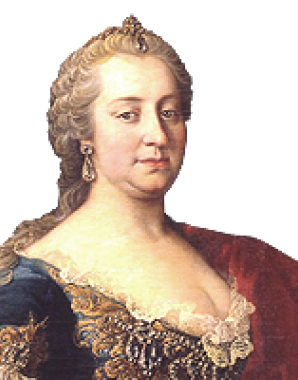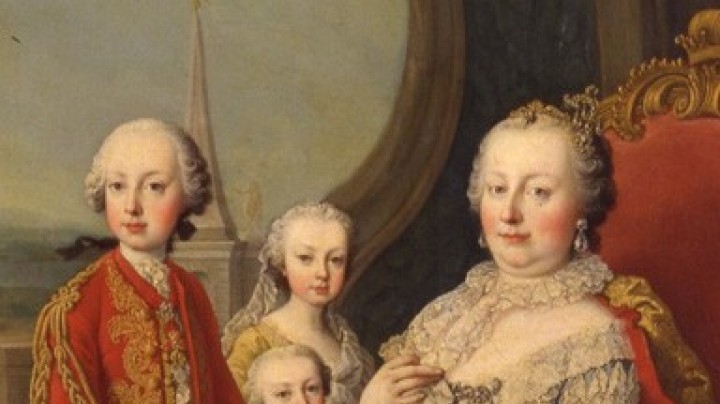Franz Stephan – overshadowed by Maria Theresa
Franz Stephan was officially joint ruler with his wife within the Habsburg Monarchy. In reality however he was merely a prince consort with a very limited scope of action.
The Prussian envoy Count Podewils reported back to Berlin:
‘He [Franz Stephan] secretly arranges amorous suppers with them [= his conquests], but the empress’s jealousy obliges him to limit himself in this regard. As soon as she notices that he is paying court to a woman, she sulks and makes life as unpleasant as possible for him.’
Maria Theresa assumed the reins of government in her hereditary lands with great self-assurance. Despite the fact that Franz Stephan’s father-in-law had originally been granted a greater share of responsibility in governance, he became increasingly sidelined in the political decision-making process by his forceful wife. At times this clouded relations between the couple, as they had different ideas about many matters.
Franz Stephan’s gradual withdrawal from day-to-day politics was interpreted as indolence and indifference. In one of his reports, the Prussian envoy Count Podewils described Maria Theresa’s husband as follows: ‘He is incapable of addressing a task in depth (...) detests work (...) lacks ambition and concerns himself as little as possible with the affairs of government.’
Franz Stephan is often described as phlegmatic type, as a charming but superficial hedonist who was dominated by his wife. More generous biographers emphasize his affability. The emperor was regarded as down-to-earth and had a great sense of reality and knowledge of human nature. Thanks to his character Franz Stephan played the role of mediator in the family. Some of the children had much closer relationship to him than to their mother, such as the eldest daughter Maria Anna, who shared his interest in the natural sciences.
His marriage to Maria Theresa, which produced sixteen children, is unanimously described as happy. A harmonious relationship of this kind constituted the exception at European courts, where dynastic unions were concluded on the basis of political considerations rather than personal liking. Although this was no different in the case of Maria Theresa and Franz Stephan, the marriage evidently developed into a working partnership. A contributory factor to the success of the marriage was doubtless the fact that the two had known each other since childhood and were able to get to know each other well before marrying. In the case of many dynastic unions the couple did not meet until the actual ceremony.
Often described in glowing colours, this marital idyll was stylized as an ideal image in the patriotic historiography of the nineteenth century. This was in keeping with the general character of the Viennese court, which was profoundly Catholic and considered strait-laced, even staid. To the outside world the emphasis was on the Catholic doctrine on marriage and sexual morality. Mistresses were not unknown but extra-marital relationships were not conducted as publicly as at other courts such as France, where the king’s favourites had considerable political influence. However, this was only valid for men – for female members of the dynasty far more rigid standards applied, whether in France or Vienna.
At the Viennese court it was customary for a married couple to share a bedroom, which constituted an exception in the courtly milieu of Europe. Used to French customs, Franz Stephan would certainly have found this in need of getting used to. According to many accounts, Maria Theresa’s husband was not averse to extra-marital amusements. There are several reports of affairs, some of which lasted for years and resulted in illegitimate offspring. Nonetheless Franz Stephan had to be very discreet. The Prussian envoy wrote that the emperor was under the constant observation of his wife and thus had few opportunities of indulging his proclivities.
One of the small number of the emperor’s mistresses who is known by name was ‘la belle princesse’ Princess Marie Wilhelmine von Auersperg, described as extraordinarily beautiful, highly educated and captivatingly charming. Born in 1738, she was thirty years younger than Franz Stephan. She was to be his last conquest, their affair ending when he died suddenly in 1765.













